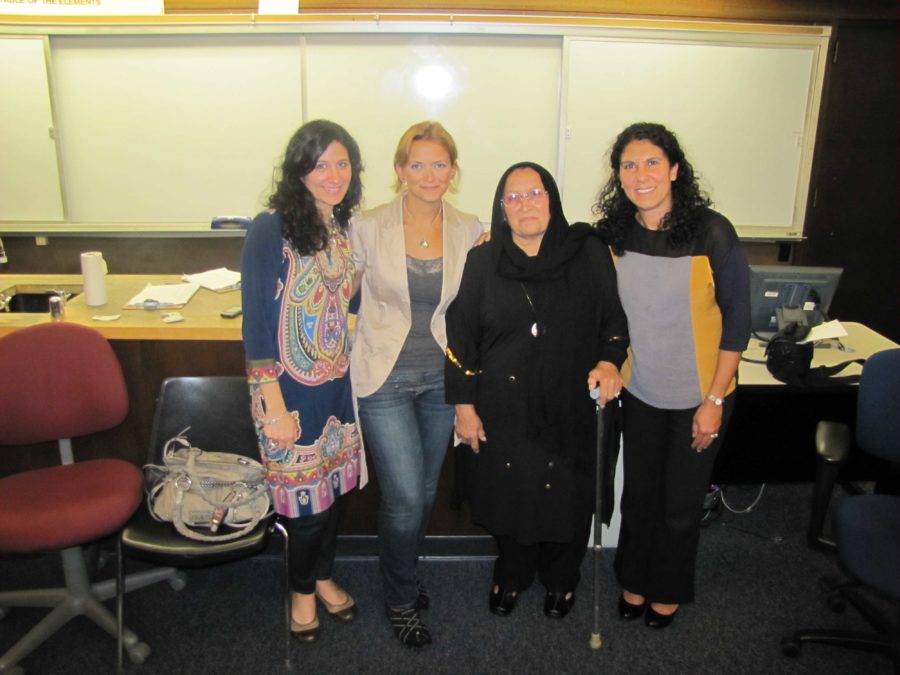Broken teeth, blood gushing out of his throat, body battered and broken on the streets of Alexandria, Khaled Saeed died on June 6 at the hands of Egyptian police officers. Dr. Hoda Rashad, Khaled’s mother Layla Marzouk and his sister Zahra Saeed came to SRJC Aug. 28 to raise awareness about the state of fear that rules over Egypt.
Students packed Lark Hall to hear the presentation. Students who came were offered extra credit for attending, but were also eager to learn.
“This is my first time hearing about the Egyptian Revolution,” SRJC student Cynthia Puntoja said. “But I want to learn more about it. Even if extra credit wasn’t offered, I would’ve still wanted to go.”
The students attending the presentation were from the geography and art departments. “It is brought to you by the Art Department as a great example of how a single image can move and wake up an entire nation,” wrote the Art Department in an invitational email to Geography 3 students.
Rashad served as presenter and translator for Marzouk and Saeed. Rashad was present during the events of the Egyptian Revolution, and said it is her goal to let people hear their story from the source: actual witnesses of the revolution. “It won’t be mainstream, but we can bring it to universities and raise the awareness we need them [western world citizens] to see,” Rashad said.
Rashad told the story of Khaled, a computer technician murdered on the streets of Alexandria because he had video showing members of the Egyptian police force splitting profits on a drug deal. After being lured out of a cyber-café, Khaled was taken into custody on charges of drug possession. Police officials beat Khaled to death, and in an attempt to cover-up the murder, broke his teeth and forced drugs down his throat, stating that Khaled died of an overdose after trying to hide contraband. Police sent Khaled’s body to the morgue under heavy guard without an official autopsy.
Days later, police allowed Khaled’s family to see his body, and a picture taken from his brother’s camera phone went viral, becoming the basis of the Egyptian Revolution. Khaled’s killers’ trials were postponed repeatedly until October 2011, when judges sentenced two officers to seven years in prison.
“The verdict was bogus,” Marzouk said. “His killer got seven years. If anyone could get seven years for murder, then everyone should go out and kill.”
In a video presentation, Marzouk said, “There is no happiness here. Why should I be happy when life has taken my son [Khaled] from me? I just want him back.”
While Egypt has not fully recovered from President Mubarak’s government, life has been improving. “Is there still police brutality, yes,” Saeed said. “But now we can walk on the streets without fear. During the revolution, snipers would shoot out our eyes and the government would cut off our electricity and water. But now, we are improving.”
Egypt is still in turmoil. The Muslim Brotherhood replaced the old regime most effectively and supports the new government.
SRJC student Greg Hughes said,“This really opened my eyes. Hearing the stories from the source is touching. We need to hear these stories, and spread awareness to those who don’t know.”


